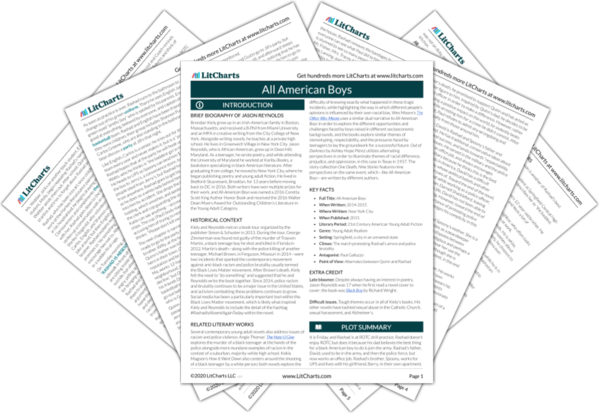AI ToolsNew
Tools to make learning and teaching easier
|
Previous
14. Thursday: Rashad
|
All American Boys: 15. Friday: Quinn Summary & Analysis |
Next
16. Friday: Rashad
|


Upgrade to unlock the analysis and theme tracking for all of All American BoysAll American Boys!
Get LitCharts A+